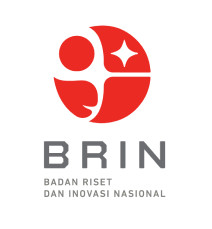Indonesia Pioneers Sustainable Aviation Fuel with Coconut Oil Innovation
JAKARTA, RAKYAT NEWS – The Indonesian National Research and Innovation Agency (BRIN) has recently unveiled an innovative project aimed at developing bio-jet fuel from coconut oil. Deliana Dahnum, a researcher from the Chemistry Research Center at BRIN, introduced the breakthrough during a discussion session in Jakarta on Thursday, November 21, 2024.
The initiative seeks to harness coconut oil as a renewable source of energy, contributing to Indonesia’s sustainable energy goals.
Bio-jet fuel is a form of renewable energy that uses vegetable oils as raw materials. Dahnum emphasized that Indonesia, with its vast tropical resources, has significant potential in utilizing coconut oil as an alternative fuel for aviation.
The country’s tropical climate is conducive to the abundant growth of coconuts, making it an ideal resource for this new biofuel innovation.
One of the key aspects of this development is the transformation of coconut oil, particularly from coconuts that are not suitable for consumption, such as older, smaller, or moldy coconuts. By converting these coconuts into bio-jet fuel, the process not only supports the aviation industry but also addresses food waste and promotes the sustainable use of agricultural resources.
To efficiently convert coconut oil into bio-jet fuel, Dahnum and her team at BRIN have developed a catalyst based on Metal-Organic Frameworks (MOFs). MOFs are innovative materials that facilitate the chemical transformation of coconut oil into biofuel, optimizing the production process for both productivity and efficiency.
The research has already entered the laboratory testing phase, where promising results have been observed. The potential for scaling up the production process is high, with the goal of using non-consumable coconuts to further enhance sustainability. This development could pave the way for the large-scale production of bio-jet fuel, benefiting both the aviation sector and the environment.
Dahnum expressed confidence that the innovation would reduce Indonesia’s dependence on fossil fuels. Moreover, it supports the local agricultural sector by utilizing a renewable resource that is both environmentally friendly and sustainable. She hopes that further research and development will help bring the technology to a commercial stage, contributing to the nation’s long-term energy sustainability.
Indonesia’s growing need for sustainable energy solutions makes this project particularly timely. The research aligns with global trends toward cleaner, greener alternatives to traditional fossil fuels, and could place Indonesia at the forefront of biofuel innovation in Southeast Asia.
The BRIN-developed bio-jet fuel project offers a promising solution to multiple challenges. It addresses the need for renewable energy, reduces waste, and supports local farmers by creating new markets for non-consumable coconuts. As the project progresses, it is expected to play a key role in Indonesia’s transition toward a more sustainable energy future.(Uki Ruknuddin)



























Tinggalkan Balasan